Faith United in Kingston, Ont., began its life as a community of faith more than 30 years ago, always meeting in rented spaces. Early in its history, United Church Conference planners purchased about a hectare of commercial property in growing Kingston East for $60,000, in case the congregation decided to build.
The congregation continued to rent — currently a theatre space in La Salle Intermediate and Secondary School — and rejected a bricks-and-mortar church. Instead, it built what it calls “an Affirming community of faith, seeking to enhance each person’s unique spiritual journey.” Led by a half-time minister, the church spends givings on outreach and donations to other organizations instead of building maintenance.
You may unsubscribe from any of our newsletters at any time.
The land sat empty, its heavy clay soil growing little but scrubby grass and weeds. But about seven years ago, a regional council group told Faith United the unused property might be sold if the congregation had no plans for it. Instead, its then-minister suggested, why not consider another use for the land? What followed was a journey of learning and community-building that brought the United Church congregation together with the diverse Kingston-area Indigenous community, in a process that exemplifies decolonization.
Along the way, in those seven years, volunteers have nourished the soil, reforested the land with about 1,000 trees and shrubs in two areas called Little Forests, and planted Indigenous-style food gardens. There’s a drilled well, a shed and a shade structure, decorated with Indigenous art. The most recent addition is a pole with an eagle nesting platform at the top.
While direct transfers of property to Indigenous-led groups are rare, decolonization is leading The United Church of Canada toward financial reparations, altered styles of governance and renewed relations with Indigenous people.
The first idea was a park, says Carol Rogers, a longtime Faith United member and trustee. Some congregants heard Kingston’s Gord Downie, the late frontman of the Tragically Hip, talk about Chanie Wenjack, an Indigenous boy who ran away from Cecilia Jeffrey Indian Residential School in Kenora, Ont., in 1966 and died on the walk home to Ogoki Post on the Marten Falls First Nation, more than 600 kilometres away. Faith United was inspired and started talking about working with local Indigenous people to create gardens and paths on the land.
That prompted church members to learn more about Indigenous people’s journeys in Canada. “We gathered a library of books written by Indigenous people and about Indigenous people, and we started educating ourselves,” says Rogers, a retired teacher and school principal.
Not everyone at Faith United got on board with the Indigenous project, but no one openly opposed it. Same went for the local Indigenous community. When a local Indigenous-owned consulting firm was hired to survey local Indigenous people in Kingston and congregation members, positive answers came from both sides.
The consultant report’s last line read, “Faith United Church, along with the United Church of Canada, wanted to repatriate the land,” says Rogers. “We recognize our own history and how we were so fortunate that the land had been given to us [by the church’s Conference development board]. I guess that’s decolonization, or an attempt to do it, at least in a small way.”
***
Decolonization is the recognition that a new relationship is needed between Indigenous people and Canada’s settler-descendants and newcomers. It includes an understanding that settlers and churches received privileges along with the land that First Nations, Inuit and Métis people had occupied. It’s an acceptance of the fact Indigenous people were displaced, dispossessed and abused.
It’s also about doing church governance differently, about recognizing Indigenous ways and values, about respecting and rebuilding treaty relationships, about finding better ways to share the land and resources. It includes reconciliation, but decolonization goes further, finding ways to repair relationships with Indigenous people and make financial reparations for past and continuing wrongs.
More on Broadview:
-
How searching for lost residential school photos made me think differently about reconciliation
- Misunderstandings, understaffed congregations bogged down votes in Indigenous United Church remit
-
New wave of Indigenous-led operas are reimagining the art form
It’s clear on whose shoulders the work of decolonization rests. Rev. Matthew R. Anderson, co-author with Rev. Raymond Aldred of Our Home and Treaty Land, writes, “Decolonization, and the unsettling realizations and actions that begin and accompany it, are tasks for those of us who are not Indigenous.” The book is currently being used as a resource by members of The United Church of Canada’s General Council Executive (GCE).
“Decolonization is a big job. At times, we are not even aware that we are participating in colonization nor recognizing how to combat it,” says Martha Pedoniquotte, a staffperson with the United Church’s Indigenous ministries and justice unit and a member of the Chippewas of Nawash Unceded First Nation in Ontario. “This is something that we struggle with on a daily basis.”
For the United Church’s governing bodies, decolonization has been spurred by recognizing the intergenerational damage caused by Indian residential schools. A colonial project of the Canadian government, the church-run schools aimed to assimilate and convert over 150,000 Indigenous youth into white, Christian society.
In 2003, the 38th General Council said, “With regard to our responses to the history of the residential school system this means that we must be aware of the context of racism that informed the colonization of Aboriginal peoples. We must also be aware of that same context which informs the resistance to decolonization of Aboriginal peoples in the present.”
The current General Council and its Executive continue that work. “Decolonization is about systems: it is about examining how colonial systems might manifest themselves in GCE’s work — and then working to try to change those,” says general secretary Rev. Michael Blair.
“It involves examining ourselves: spiritually, mentally, physically and emotionally,” Blair says. “In addition, we can examine our relationship with the land.”
The Executive is also moving away from the process of motions, amendments and votes and toward consensus decision-making, as well as “affirming diverse identities and being attentive to different ways of thinking,” Blair says.
Rev. Teresa Burnett-Cole, the GCE’s representative on the church’s National Indigenous Council (NIC), as well as a voting NIC member and part of the GCE’s working group on decolonization, says her group focuses on anti-racism and racial justice “directly working to root out racism in our structures and policies.” That translates into “attempting to change how we make decisions and who gets consulted prior to decision-making.”

For example, working group members track six equity aspirations at GCE meetings: “question biases, challenge assumptions, notice who’s missing, value all voices, aim for equity and live out our commitments.”
On the practical side, Blair says that reparations, “an action component” of decolonization, are a priority this year. General Council’s strategic plan calls on staff to “develop theology, policy, educational resources and strategies to return resources, real estate and artifacts taken from Indigenous or racialized communities or provide appropriate compensation.”
The Calls to the Church from the Caretakers of Our Indigenous Circle, a “framework for reconciliation” adopted by the 43rd General Council in 2018, said, “The United Church is asset rich. Rich in land and properties….These lands were stolen by false promises in treaty negotiations….Justice in land matters must be about reparations and not only apologies….Selling church properties is a matter of Indigenous land justice or injustice. We are grateful for every effort…to give back to the Indigenous ministries when churches decommission and properties are sold. May this justice flow like a river.”
In 2020, the most recent information available, the market value of church land was estimated at $1.7 billion, and the value of buildings and contents at $5.3 billion. The market value of vacant church sites is $56 million. When a community of faith sells its property, 10 percent of proceeds goes to support Indigenous ministry.
Since 2020, the financial flow from property sales to Indigenous ministry has been about $4 million.
***
At Faith United, says Rogers, building relationships with local Indigenous people and working together to return the land to a more natural state was key. The current financial value of the property was never considered. Over the last several years, about 600 local volunteers, including non-church community groups and donors, planted the trees and gardens, created parking space and an off-grid water system and decorated a shed and shade structure with Indigenous art.
“I can’t emphasize enough that this stuff all has to be grassroots relationships and person-to-person,” says Rogers. “It can’t be imposed.”
Relationships and connections have brought members of Faith United together with about 100 local Indigenous people. Many close friendships have formed.
Later this year, the land at the Kingston East property will be legally transferred to the Indigenous-led All Our Relations Land Trust. The group is already in charge of activities at the property. Broadview was unable to schedule an interview with the leadership of All Our Relations Land Trust by deadline.
***
How can communities of faith who want to decolonize get started? Self-education is one approach. Last year, the General Council office offered an online course called Placing Ourselves in Colonialism, a “four-session workshop for settlers and newcomers to explore our histories and stories.” The series was inspired by the book Healing Haunted Histories: A Settler Discipleship of Decolonization by Elaine Enns and Ched Myers. It leans heavily on Mennonite settlers’ history but offers practical tactics for decolonization.
Enns and Myers encourage settler-descendants to investigate their own family histories and those of the Indigenous people they displaced. “We believe that the personal and political work of decolonization…necessitates both ‘inward and outward journeys’ of transformation,” they write.
The online course had 240 registrants, about half attending at any time. Organizers say they don’t know how many of the United Church’s 2,600 preaching places were represented. But most who attended indicated they would continue to work at decolonization. Another course is planned for fall of this year.
Teresa Burnett-Cole, as well as representing the Executive on the NIC, is minister of Glebe-St. James United in Ottawa. Her congregants go beyond land acknowledgments by budgeting for what they call a “land-use fee.” For eight years, a portion of their annual budget has gone to an Indigenous organization in the city “to formally acknowledge our use of land that remains unceded by the local Indigenous nations.”
Across the United Church, says Burnett-Cole, undoing the effects of colonization will take more than talk. So far, she says, “We talk about decolonization a lot, but we haven’t made much headway in dismantling the church structures and policies that will demonstrate to the wider church that change is happening.”
On the other hand, reconciliation — a step toward decolonization —has been discussed in many congregations. Faith United, for example, is part of a truth and reconciliation action group with two other United churches in Kingston.
The results of a recent remit asking church regional councils and pastoral charges to vote on whether to allow the creation of an autonomous national Indigenous organization within the United Church may be a good test of support for tangible acts of reconciliation. With 80 percent participation, a majority of 2,000 pastoral charges voted yes this spring. The next step is for the General Council to enact the remit at its October meeting.
With decolonization, though, non-Indigenous people must be prepared to give up control, along with land or money or power, if they are to make a difference, as Faith United realized during the process of giving the land back to the Indigenous community.
Rogers says her community of faith originally thought they might continue to use the land from time to time for worship, even though it will be in the hands of the All Our Relations Land Trust. But as local Indigenous people began to use the land and hold their own ceremonies, the church folks realized they had to back away.
“Once we got away from our idea that we thought we could have a few little services there, once we got out of it totally, that brought a lot of respect for us. A change of heart for some.”
***
Mike Milne is a journalist in Owen Sound, Ont.
Vanessa Kennedy, who served as a sensitivity reader for this article, is an Indigenous consultant in Hillsdale, Ont.

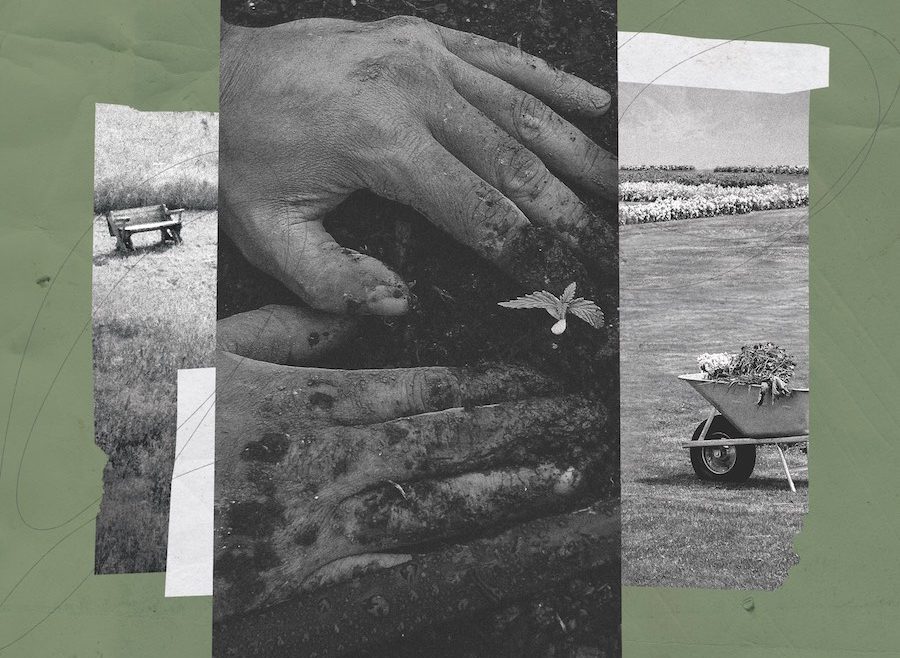



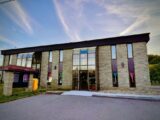

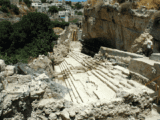


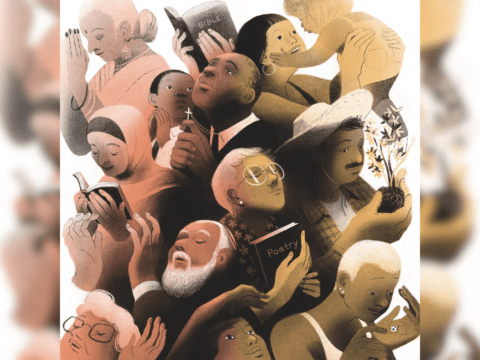

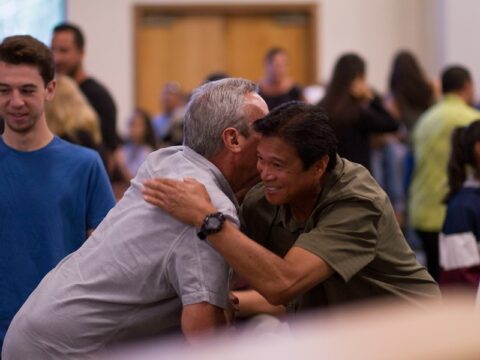
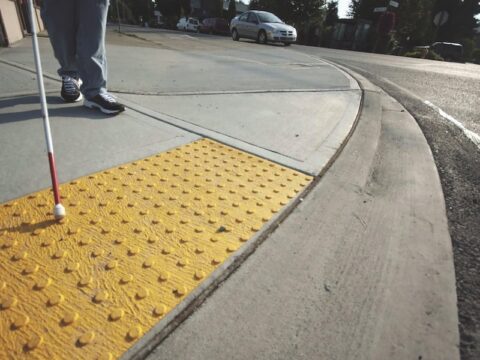
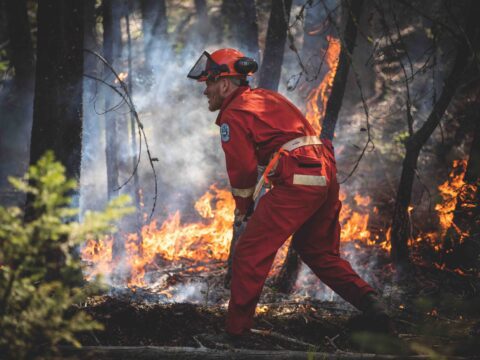
This is a process and an outcome that is inspiring to Canadian churches and all public institutions.